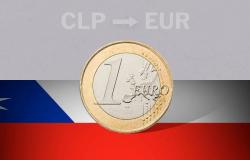With more than 20 years of experience in the Kaufmann Group, Cristián Contreras, New Energy and Products Manager in the company, has implemented his seal to today lead the policies that promote the democratization of electrification in the different representations of brands that have been transformed in positioning and experience leaders in Chile, where the takeoff has been especially incredible with its different brand representations for buses, trucks and passenger vehicles.
Kaufmann Group stands out as a large conglomerate made up of Kaufmann and its brands Mercedes Benz, Fuso and Freighliner; and on the other Andes Motor, with its important representations of Maxus, Foton, Iveco, SANY, Agrale, Karry, Jetour and Kaiyi.
As an Industrial Engineer, Cristián Contreras contributed his experience for 15 years in the after-sales of different products in the Group, and in the last five years he began to work on electromobility issues after a visionary decision by the managers of Andes Motor and Kaufmann, which they defined that “To be pioneers we had to do it well, which led to Maxus’ significant results in the market, which positioned it as the leading truck; and Foton, with its successful urban focus for the Red system”, emphasizes the executive.
Cristián Contreras, manager of New Energies and Products at the Kaufmann Group.
“I had to travel all over the world, it was exhausting but very entertaining. We had to know the experience in China, the US, India and Japan, from where we learned the main lessons: and China was the model to follow. The Chinese had second generations of products in 2018 and we decided to start,” Cristián tells us.
In this way, the Kaufmann Group began to coin the concept “The electric mobility ecosystem” where the center is always the client, who must be fully advised when purchasing an electrical solution, aware of costs and experience, which today allows the Group to provide 360-degree attention, which includes not only the vehicle , but also charger, own telemetry until financing.
Democratizing electromobility
For Cristián Contreras, the vision of electromobility is positivist because from the perspective of the experience of the RED system, operating in the Metropolitan region, “Everyone has access to electromobility as users of a service, benefiting from a cleaner, less noisy and efficient environment”
“Balancing costs is also strategic – points out the executive – because where there is a significant fleet of electric buses, we are removing friction from a process in an early adoption curve of electromobility”
The company recognizes that there is still a long way to go in the implementation of electromobility, “We must convince those who come from the world of combustion, as passenger users where a story must be built and in the regions where we are also beginning to build another experience”says Contreras.
The valuable experience with Andes Motor: More than 50 million electric kilometers traveled
The work that has been done at Andes Motor is something to be filled with internal pride, the Kaufmann Group points out. The work from top management to those who develop each customer relationship process has allowed the company to identify itself as the one that has sold the most electric vehicles in Chile, and this history allows for an important projection.
“We have an experience of more than 50 million kilometers of units sold by Andes Motor, there is data and there is a complementarity that we work as Grupo Kaufmann. “We have developed our own charging network in Chile, which is available to its customers and to anyone who wants to charge their electric vehicle,” Cristián Contreras emphasizes.
In fact, the network that exists between Curicó and Talca stands out, which is currently widely used by Mercado Libre, until they finish setting up their own charging HUB in the regions, which has made it possible to complement the rest of the existing charging network. throughout the country. “We are not competition with load generators. “What we do is improve and facilitate the network, allowing an electric car today to have a usage cost of $24 pesos per kilometer,” the executive highlights.
Therefore, it is crucial to discuss the financing of transportation electrification where Contreras highlights the importance of structuring solid financial mechanisms to support the purchase of electric buses and the installation of charging infrastructure. This includes the need to optimize energy costs and find innovative ways of financing large-scale projects.
Regarding public policies, the executive highlighted the national decarbonization and electromobility strategies in Chile, with time horizons that go until 2050. These policies provide a framework to promote the transition towards more sustainable and electrified mobility. However, he also highlights the remaining challenges, “such as the availability of energy resources to power the growing fleet of electric vehicles. There is a need to ensure power generation capacity to avoid potential bottlenecks in the future.”
“We are an important example for the world in terms of transportation electrification in Chile. Our country is an outstanding showcase for the rest of the world in terms of adoption of electric vehicles and renewable energy generation. “For this reason, we must also worry about our potential as producers of important resources such as copper and lithium, and the development of businesses that enhance them,” Indian.
RED System Tender, a great challenge.
Regarding the preparation for the RED system tender, Contreras emphasizes the important challenge it represents. “This will be the first tender for 100% electric fleets in Chile, which will consolidate Santiago as the main Latin American capital with electric vehicles for public transportation. “The Kaufmann Group is preparing to offer the best possible offer, collaborating closely with the factory and the environment to guarantee the competitiveness of its proposals,” emphasizes.
Without a doubt, electric mobility has the potential to significantly reduce greenhouse gas emissions and improve air quality in Chilean cities, however it is not the only solution, and it is a parallel work being studied and carried out by the Kaufmann Group. .
Chile still has important challenges related to charging infrastructure and financial incentives for the purchase of electric vehicles and strengthening collaboration between the government, the private sector and civil society.
“The main thing is to educate and raise awareness among the population about the benefits of electric mobility and promote innovation in clean technologies and renewable energies, with a comprehensive and collaborative approach, where I am sure that Chile can become a world leader in electric mobility and sustainable”, concludes Cristián Contreras.






